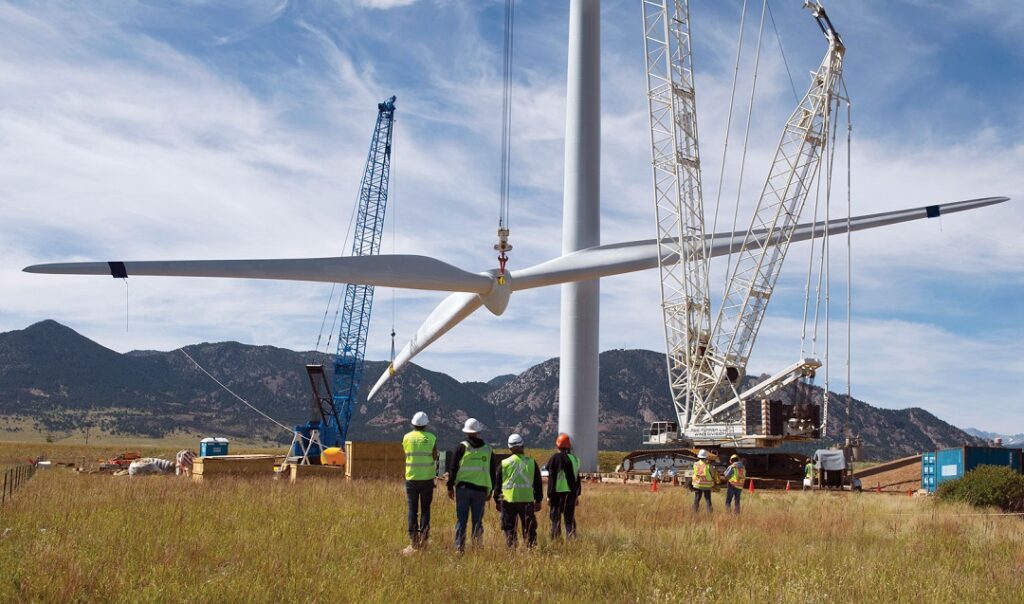- Across Africa, a direct correlation exists between income levels and energy use.
- Poor households are often constrained to rely on environmentally detrimental fossil fuels like charcoal and firewood for energy.
- With better incomes, African households can transition to cleaner energy alternatives such as natural gas.
The pioneering work of Kraft and Kraft in the mid-20th century established a link between energy consumption and economic growth in the USA. Drawing on similar principles, recent research has highlighted a direct connection between income levels and energy consumption patterns in Africa.
This article delves into the intricate relationship between income and energy use in Africa and emphasizes the pivotal role of financial inclusion in addressing poverty and climate change.
The link between income and energy consumption
The fundamental theory of consumption posits that household income shapes consumption habits, encompassing not only food but also energy sources. Notably, a direct correlation exists between income levels and energy consumption, underscoring the importance of financial inclusion in Africa for poverty alleviation and climate change mitigation. Impoverished households are often constrained to adopt less nutritious diets and rely on environmentally detrimental fossil fuels like charcoal and firewood for energy.
Energy landscape in Africa
Despite Africa’s abundant natural gas resources, the majority of its populace, particularly in rural areas, still depends on charcoal and firewood for energy due to affordability concerns. This trend extends even to businesses and larger companies.
Some East African countries, such as Kenya and Ethiopia, have active geothermal resources. Geothermal power plants are being developed to harness the Earth’s heat for electricity generation.
Africa’s numerous rivers and water bodies offer significant hydropower potential. But due to the challenges of extending centralized grids to remote areas, mini-grids and off-grid solutions are gaining traction. These include solar home systems, micro-hydro systems, and other localized renewable energy installations.
With improved financial means, African households can transition to cleaner energy alternatives such as natural gas, contributing to both environmental preservation and economic development.
Also Read: Renewables, gas cheapest ways to meet Mozambique’s electricity demand
Debates on the income-energy relationship
Critics challenge the idea of a direct link between economic growth and energy consumption, putting forth the neutrality hypothesis. However, recent research in Africa suggests otherwise. Factors influencing the adoption of renewable energy technology in the continent include per capita GDP, education, regulatory mechanisms, and economic incentives.
A study examining ECOWAS countries revealed a robust connection between access to renewable energy, economic growth, and development. As real GDP increases, the demand for modern energy services rises at both household and macro-economic levels. Economic growth triggers an upsurge in modern energy demand, substantiating the relationship between GDP growth and renewable energy consumption.
Investing in renewable energy for development
A strategic focus on renewable energy investment can yield substantial benefits for Africa’s economic and environmental landscape. Job creation and economic expansion are expected outcomes of investing in clean energy. This is demonstrated by studies indicating that higher household income leads to increased use of renewables. Such investments facilitate broader access to clean energy sources. They also reduce the reliance on environmentally destructive options like charcoal and firewood.
Research findings indicate that higher foreign direct investment corresponds to increased renewable energy consumption within a country. Additionally, higher per capita GDP and Human Development Index (HDI) scores are linked to greater adoption of renewable energy sources. Economic freedom, characterized by effective market institutions and resource allocation, positively influences both household and national renewable energy consumption.
Also Read: Africa’s perfect energy cocktail for power sufficiency
A holistic approach to energy transition
To counter the pollution resulting from fossil fuel combustion, Africa needs to bolster revenue at household and national levels. This might seem paradoxical considering the relationship between GDP growth and fossil fuel usage, but the energy transition financing from organizations like the G7 provides a solution. The Paris Agreement emphasizes the responsibility of industrialized nations to financially support Africa’s climate change mitigation efforts.
South Africa exemplifies the potential of energy transition financing. Facing energy shortages due to coal reliance, the country aims to shift towards clean energy sources. This transition is projected to create jobs, increase household incomes, and enhance economic efficiency while curbing pollution.
African governments must strategically pursue renewable energy financing from the G7 to facilitate efficient and sustainable transitions.
The intricate interplay between income levels, energy consumption, and environmental impact is undeniable. For Africa, the path toward sustainable development involves leveraging financial inclusion, investing in renewable energy, and receiving support from global initiatives.
By addressing income disparities and facilitating clean energy adoption, Africa can achieve economic prosperity while safeguarding the planet for future generations.




